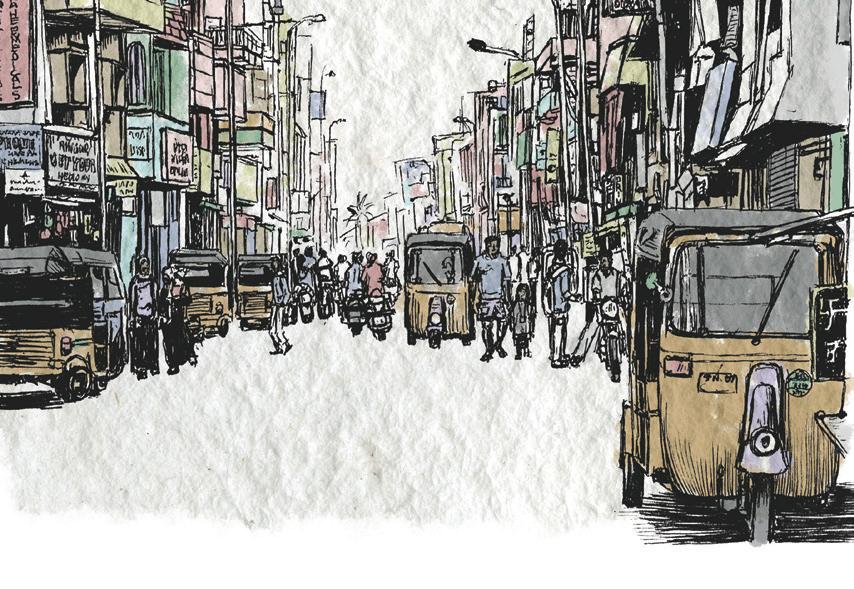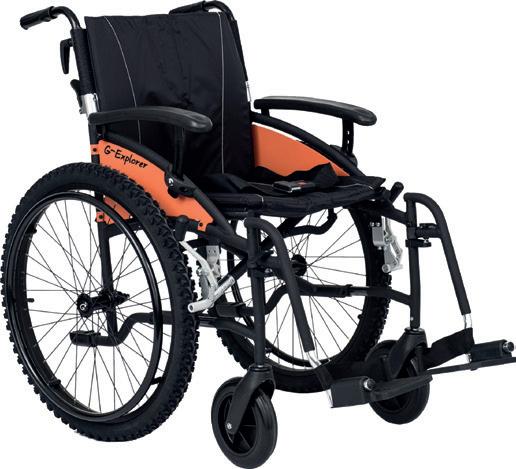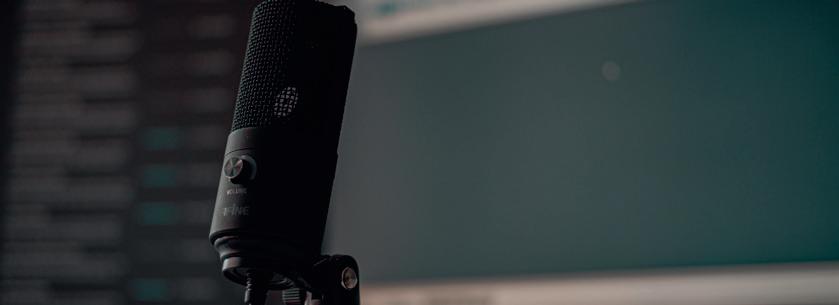
7 minute read
OT Overseas
Melissa Purkis shares her experience of volunteering as an OT for a school in India
On the 31 July 2019 I landed in Chennai, India to be an OT in a school for children with disabilities. I had given myself one week in the busy city of Chennai to aclimatise. In retrospect the words aclimatise and India don’t really go hand in hand. India, I learnt very quickly is a ‘go with the flow’ kind of place where anything can happen.
Advertisement
After a long 12-hour train journey, I met the owner and founder of the school (Murugan) who, with his driver, had made a sign with my name on it and found me at the busy train station. We stopped on the way for paneer curry pizza, and three hours later I arrived in the dark at my new home for the next few months. I would be living in a room above Murugan’s family home in the middle of the countryside in the district of Theni, Tamil Nadu.
The next day I discussed with Murugan that I would like to observe the children and their teachers in their classes for a week, which he agreed to. However, two days into this he brought over 110 children (one at a time) into his office. With him sat one side of the desk, a child sat next to me and their teachers, parents, carers standing up in a very small, but thank goodness air-conditioned room! They would proceed to list all their issues, whilst the child sat there not being involved, or more often than not, running away!
Murugan would translate as much as he could, then I would give advice based on what little I could observe. I ended up bringing fine motor activities into the space so at least the children were kept busy and I could observe more of their skills at the same time. It was overwhelming to say the least. A lot of children were inappropriate for OT input. On reflection setting up a simple referral system would have been really useful, and would have saved a lot of time. I gave a lot of advice on seating and posture; this however was challenging to rectify as the classrooms only had long steel benches which resulted in lots of poor posture and in turn reduced attention levels. Facilitating eating skills was another obstacle as children (and adults) sat cross legged on the floor to eat their food with their hands. For children with limited core strength and fine motor coordination this proved a very difficult part of their day. INTERVENTIONS I attempted to group children into those needing further classroom observations, 1-1 OT sessions and set up a core stability group which was facilitated by my OT assistant and translator Moutopandi. I also organised an upper body strengthening group and we worked on painting a tree mural on one of the blank walls at the school. This proved very successful, with all the children wanting to get involved. The upper body strengthening intervention involved a fine motor skills warm up of ripping paper, screwing it up and dipping it into paint to print onto the walls. The children also helped to carry paint pots and benches to the space as a calming, grounding activity. I also drew dotted lines of the tree branches and got the children to join the dots. I worked closely with the children’s parents who often came in to help their children access their daily school activities. I gave advice on grading and backwards chaining for dressing, and answered various questions. One question I got asked about a lot was sleep, I came to realise swiftly that due to all the family sleeping in one room the standard UK advice on sleep was not relevant.
TRAINING SESSIONS I gave an interactive training session to the teachers which was very well received. I focused on the pyramid of learning. I gave practical easy activities that teachers and children could do to regulate themselves. I also gave everyone pictorial handouts for reference. On reflection I should have done more of these training sessions as it empowered the staff and they were able to come up with their own ideas. CHALLENGES

There were many challenges to my volunteering experience, one of the biggest being the difference in culture and them seeing me as a ‘fixer of the children’. There had been a German physiotherapist and OT that had come previously, who also had a very different approach to mine. The language barrier was a massive one, my manager did speak some English, however it was limited, which impacted on my advice. Feeling isolated due to the language barrier, cultural differences and not having anyone else in person to talk through my experiences with was difficult at times. ACHIEVEMENTS 1 Making use of informal supervision with OT friends back at home. Writing a blog and reflecting on my experiences for friends and family 2 Realising that a very small change can make a big difference 3 Being able to use my experiences in India to impact my OT practice in the UK 4 Forming good working relationships with Indian colleagues even with the language barrier I would urge you to live in the country and try to understand the culture first. I jumped straight in without any underlying foundation. This did not help the children and staff I was working with, or myself. Ask yourself, is it sustainable? Who are you actually benefiting? For example, I focused on training the teachers and empowering the parents, rather than doing 1-1 sessions with the children. Are you giving them tools they can use themselves? Can a local person do it, and be paid for it? Make it fun and have fun. Whatever you do, they will benefit more if it is enjoyable. Something as simple as hide and seek produced instantaneous smiles, and worked on occupational skills such as eye contact and tracking. In India, and perhaps many developing countries, women are considered a ‘lesser class’ this ignited the feminist in me (thank you mum)! I was continually fighting to make my point of view heard as a younger woman. Learn the language, or at least the basics, even if you are just travelling in a country. This was vital, and I was lucky enough to have a basic understanding and an OT assistant that could translate what I wanted to convey.
USEFUL LINKS
DOCUMENTARIES
‘THE VOLUNTOURIST’: IS VOLUNTOURISM DOING MORE HARM THAN GOOD?
A 30-minute documentary pointing out the challenges of volunteering. ORGANISATIONS
MAITS
Organisation offering resources, education on disabilities, and grants. Also has great links with professionals overseas to train and empower local communities. maits.org.uk
OT FRONTIERS
UK-based organisation which supports and informs OTs who are thinking about working in low income countries. Also has a great free PDF resource booklet called ‘Working in less resourced settings’. otfrontiers.co.uk
WORKAWAY
Organisation offering cultural exchange opportunities around the world, usually volunteer time is in exchange for food and accommodation. workaway.info
All Terrain Wheelchairs
Shortly after getting engaged 10 years ago, Jacqui Green from Hampshire was diagnosed with MS. Unlike some people living with MS, Jacqui’s condition deteriorated quite quickly due to a number of relapses and she soon found herself requiring the use of a scooter. The only problem was every scooter Jacqui tried was fine on paths and concrete but as soon as she ventured off road she would get stuck despite being told the scooter would be OK. This meant her husband David had all the fun of going for long walks with their dog, Duke while Jacqui was left watching from a distance. All this changed when Jacqui discovered All Terrain Wheelchairs. “When I saw the videos online I knew I had found the answer and immediately got in touch with All Terrain Wheelchairs who arranged to visit us with a demonstration model. As soon as I sat in the Extreme X8 and realised what it could do I said to David ‘this is the one for me’ and it was the best thing I ever did, it is just awesome!” Jacqui continued: “I use my X8 every day and it is incredibly comfortable which was another factor when deciding to get one. But the main thing was the fact it does what is says – it goes over all terrain. I am a firm believer that just because I have a disability, there is no reason why I should not be able to enjoy the outdoors as much as I did prior to my diagnosis”. Every powerchair supplied by All Terrain Wheelchairs is bespoke and available with a comprehensive range of seating and control options to ensure there is a suitable model for anyone regardless of their level of mobility and independence.
www.allterrainwheelchairs.co.uk info@allterrainwheelchairs.co.uk 01952 471255







